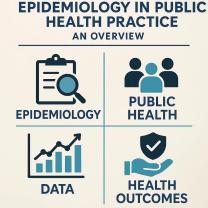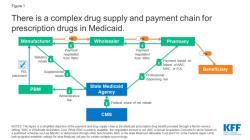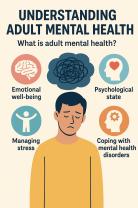What is the treatment for anemia during pregnancy?
Anemia during pregnancy is a common condition where the number of red blood cells or the concentration of hemoglobin in the blood is lower than normal. It's important to address anemia during pregnancy to ensure the well-being of both the mother and the developing fetus. The treatment for anemia during pregnancy may involve dietary changes, iron supplementation, and, in some cases, medical intervention. Here are common approaches to treat anemia during pregnancy:
Iron-Rich Diet:
- Consuming iron-rich foods is a fundamental part of treating anemia. Good sources of dietary iron include red meat, poultry, fish, beans, lentils, tofu, fortified cereals, spinach, and other leafy green vegetables.
Iron Supplements:
- In addition to dietary changes, healthcare providers may recommend iron supplements to help increase iron levels. These supplements are often in the form of ferrous sulfate or ferrous fumarate. It's crucial to take iron supplements as prescribed by a healthcare professional, as excessive iron intake can have adverse effects.
Vitamin C Supplementation:
- Vitamin C enhances the absorption of non-heme iron (the type of iron found in plant-based foods and iron supplements). Including foods high in vitamin C, such as citrus fruits, strawberries, and bell peppers, can aid in the absorption of iron.
Folic Acid Supplementation:
- Folic acid is another important nutrient during pregnancy. While it does not directly treat iron-deficiency anemia, it helps prevent neural tube defects in the developing fetus. Pregnant women are often advised to take folic acid supplements, and some prenatal vitamins include both iron and folic acid.
Monitoring and Regular Blood Tests:
- Regular monitoring of hemoglobin levels through blood tests is essential to track the effectiveness of the treatment. Adjustments to the treatment plan may be made based on the results.
Treatment of Underlying Causes:
- Anemia during pregnancy can have various causes, including nutritional deficiencies and chronic medical conditions. If the anemia is a result of another underlying condition, such as thalassemia or sickle cell disease, the healthcare provider will address the specific cause accordingly.
Intravenous Iron Therapy:
- In severe cases of anemia where oral iron supplements are not sufficient, healthcare providers may recommend intravenous (IV) iron therapy. This involves administering iron directly into the bloodstream through a vein.
Lifestyle Changes:
- Adequate rest, a balanced diet, and staying hydrated are important aspects of managing anemia during pregnancy. Pregnant individuals should avoid excessive caffeine intake, as it can interfere with iron absorption.
It's crucial for pregnant individuals with anemia to work closely with their healthcare providers to determine the most appropriate treatment plan for their specific situation. Self-diagnosis and self-treatment are not recommended, as the underlying causes of anemia can vary, and the treatment approach needs to be tailored to individual health needs.
Understanding the causes and symptoms of anemia during pregnancy: Identifying risk factors and recognizing signs of anemia
Anemia is a common condition during pregnancy, affecting up to 50% of pregnant women worldwide. It occurs when there is not enough iron in the blood to carry oxygen to the body's tissues. This can cause a variety of symptoms, including fatigue, weakness, dizziness, shortness of breath, and pale skin.
Causes of anemia during pregnancy
The most common cause of anemia during pregnancy is iron deficiency. This can happen because the body needs more iron to support the growth of the baby. Other causes of anemia during pregnancy include:
- Folic acid deficiency: Folic acid is a B vitamin that helps the body produce red blood cells. Folic acid deficiency can also lead to anemia.
- Vitamin B12 deficiency: Vitamin B12 is another nutrient that is important for red blood cell production. Vitamin B12 deficiency can be caused by a lack of dietary intake or by a malabsorption disorder.
Risk factors for anemia during pregnancy
Certain factors can increase a woman's risk of developing anemia during pregnancy. These include:
- Multiple pregnancies: Each pregnancy increases a woman's need for iron.
- Closely spaced pregnancies: Not having enough time between pregnancies can make it difficult for the body to replenish iron stores.
- Heavy menstrual periods: Women who have heavy menstrual periods lose more iron each month, which can increase their risk of anemia.
- Certain medical conditions: Certain medical conditions, such as Crohn's disease or ulcerative colitis, can interfere with iron absorption.
Symptoms of anemia during pregnancy
The symptoms of anemia can vary depending on the severity of the condition. Some common symptoms include:
- Fatigue: This is the most common symptom of anemia.
- Weakness: You may feel weak and tired easily.
- Dizziness: You may feel dizzy or lightheaded when you stand up quickly.
- Shortness of breath: You may feel short of breath, especially when you are exercising.
- Pale skin: The skin may appear pale or yellowish.
- Brittle nails: The nails may become brittle and break easily.
- Headache: You may experience headaches.
Recognizing signs of anemia
If you are pregnant and you are experiencing any of the symptoms of anemia, it is important to see your doctor. They will check your blood iron levels and determine if you have anemia. If you do have anemia, they will recommend treatment options.
Dietary recommendations for managing anemia: Incorporating iron-rich foods and vitamin C sources
Eating a healthy diet that is rich in iron can help to prevent or manage anemia during pregnancy. Good sources of iron include:
- Red meat: Beef, pork, and lamb are good sources of iron.
- Poultry: Chicken and turkey are also good sources of iron.
- Fish: Tuna, salmon, and sardines are good sources of iron.
- Iron-fortified cereals: Many breakfast cereals are fortified with iron.
- Beans and lentils: Beans and lentils are a good source of plant-based iron.
- Dark green leafy vegetables: Spinach, kale, and collard greens are good sources of iron.
It is also important to eat foods that are rich in vitamin C, as vitamin C helps the body absorb iron. Good sources of vitamin C include:
- Citrus fruits: Oranges, grapefruits, and lemons are good sources of vitamin C.
- Strawberries: Strawberries are a good source of vitamin C.
- Bell peppers: Red, green, and yellow bell peppers are good sources of vitamin C.
- Broccoli: Broccoli is a good source of vitamin C.
Iron supplementation: Consulting a healthcare provider about iron supplements and dosage
In some cases, a woman may need to take an iron supplement in addition to eating a healthy diet. Iron supplements are available over-the-counter or by prescription. It is important to talk to your doctor before taking an iron supplement, as they can recommend the correct dosage and type of supplement for you.
Additional tips for preventing anemia during pregnancy
In addition to eating a healthy diet and taking iron supplements, there are a few other things you can do to help prevent anemia during pregnancy:
- Avoid taking antacids with meals. Antacids can interfere with iron absorption.
- Cook with cast iron cookware. Cast iron cookware can add iron to your food.
- Drink plenty of fluids. Fluids help the body absorb iron.
By following these tips, you can help to prevent anemia during pregnancy and ensure that you are getting the nutrients you need to support your growing baby.













